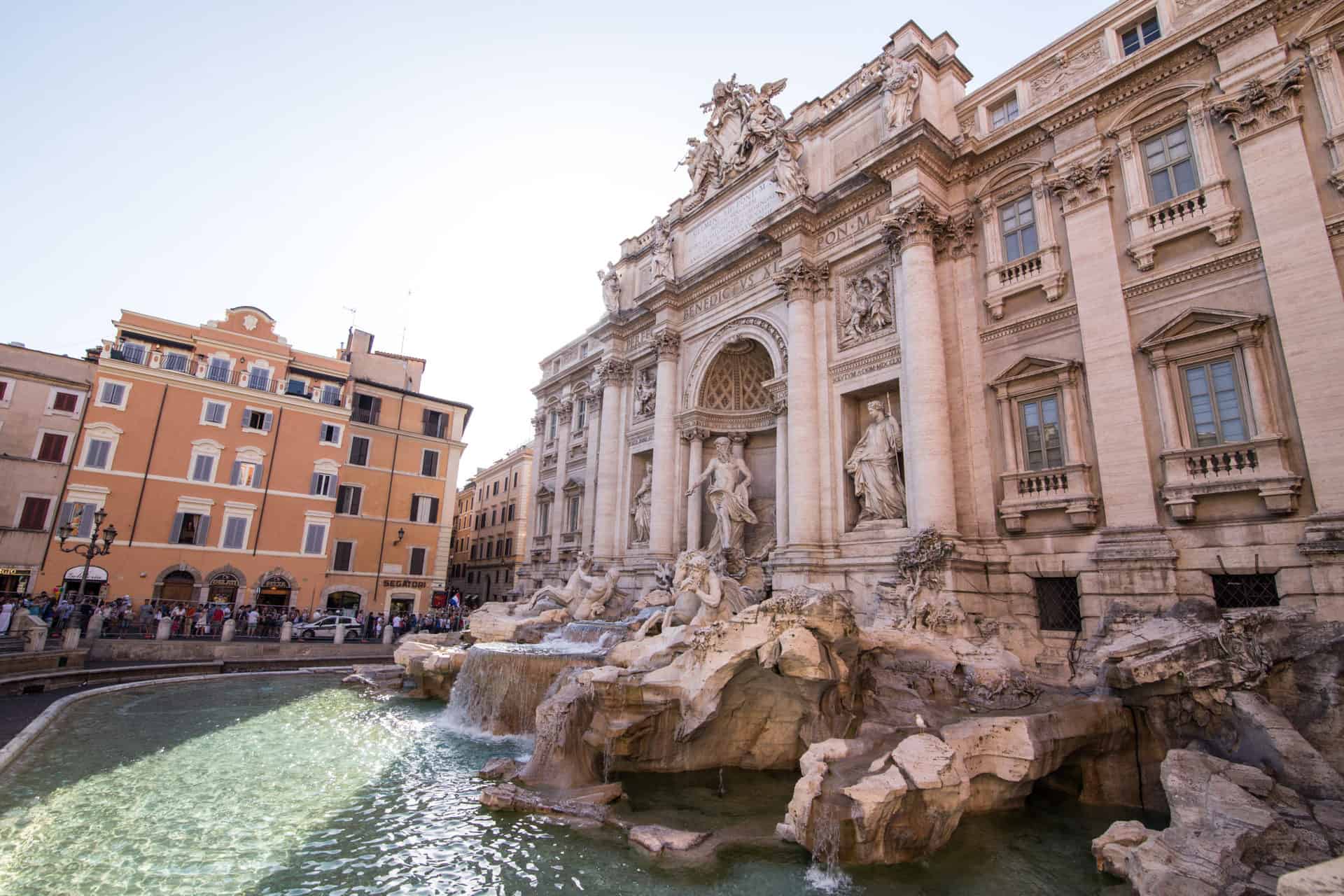The Ethical Traveler’s Guide: Embracing Global Cultures Responsibly

Updated On: April 30, 2024 by Ciaran Connolly
Travel has become an essential part of our modern lives, offering us the chance to explore new destinations, understand different cultures, and create lasting memories. However, the importance of travelling responsibly cannot be overstated. As ethical travellers, we must navigate through diverse cultures with both respect and responsibility, ensuring our experiences contribute positively to the places we visit and the people who call them home. Ethical travel involves a conscious effort to minimise our impact and engage with local communities in a way that is beneficial, respectful, and sustainable.

We face various considerations when embarking on our travels, from understanding and respecting cultural norms to evaluating the economic implications of our decisions. The concept of responsible travel guides us in making choices that support the local economy and environment. Engaging in sustainable travel means we seek out ways to reduce our carbon footprint and advocate for preservation. As we travel, we also have the opportunity to address social impacts, promoting positive change and empowering local communities. Our responsibility extends to the wildlife we encounter, ensuring our interactions are ethical and do not contribute to harmful practices. The health and safety measures we adopt can further demonstrate our commitment to being conscientious travellers.
Key Takeaways
- Ethical travel emphasises respect, responsibility, and positive contributions to local communities.
- Responsible travel encourages economic, environmental, and social sustainability in destinations.
- Sustainable travel practices are integral to conserving cultural heritage and natural biodiversity.
Understanding Ethical Travel
In the realm of global exploration, becoming a responsible tourist is essential. We’ll define what constitutes ethical tourism and explore the significance of travelling with accountability.
Defining Ethical Tourism
Ethical tourism is an approach to travel that aims to respect local cultures, support economies, and minimise negative environmental impacts. It’s a commitment to travelling in a manner that is considerate to the host destinations and beneficial or neutral to the areas visited. It involves making thoughtful choices that reflect an understanding of the implications of our actions as travellers.
Efforts in ethical tourism result in the selection of accommodations that are environmentally friendly, engaging with local communities in a way that is respectful, and choosing experiences that do not exploit people, animals, or the natural environment. It’s about making purchases that contribute positively to the local economy and avoiding activities that could be harmful to local heritage or traditions.
The Importance of Responsibility in Travel
Our duty as travellers is to be mindful of the footprint we leave behind. The importance of responsibility in travel lies in the potential for either positive or negative outcomes of our visits to foreign lands. As responsible tourists, we must consider the social, economic, and environmental impact of our expeditions.
Being responsible means that we should engage with cultures without altering or damaging them. By choosing to travel ethically, we help preserve the world’s invaluable cultural diversity and ensure that future generations can also enjoy and learn from these rich experiences. Our actions maintain the integrity and authenticity of the places we visit, uphold the dignity of local people, and potentially contribute to conservation efforts.
Through our journey as ethical travellers, all of us carry the potential to become ambassadors of sustainability and cultural sensitivity. By embracing our responsibilities, we support a vision where travel is not merely a fleeting pleasure but a force for positive change and mutual respect.
Cultural Sensitivity and Respect
In this guide, we’re focusing on the imperative of navigating cultural exchanges with both sensitivity and respect. These practices ensure that our travels enrich not only our own experiences but also honour the local communities and environments we visit.
Engaging with Local Cultures
When we travel, engaging with local cultures is both a privilege and a responsibility. To do so respectfully, it’s vital to first acquaint ourselves with the do’s and don’ts. Whether it’s a question of how to dress or the correct way to address someone, taking the time to understand local customs can make all the difference. Considering the impact of our actions on indigenous people is part of this awareness. This includes being cautious with photography, as taking photos without consent can be intrusive and disrespectful.
Appreciating Cultural Heritage
Our attitude towards cultural heritage must always be one of reverence and appreciation. We recognise that cultural artefacts, sites, and practices are not merely tourist attractions but carry deep significance for local communities. By valuing these treasures, we contribute to their preservation. Learning about the importance of cultural heritage can enhance our understanding and enjoyment of a place while also supporting its protection and continuation for future generations.
Through these actions, we aim to traverse the globe not just as visitors but as responsible participants in a larger cultural tapestry. Our journey is about creating connections that are meaningful, respectful, and enriching on all sides.
Economic Considerations of Travel
When we explore new destinations, our financial contributions can have significant impacts on local economies and influence the course of economic development. It’s essential to consider the ways in which our travel spending aligns with fair economic practices and supports sustainable growth.
Impacts on the Local Economy
Our travel expenditure plays a crucial role in the local economy of the places we visit. By choosing to spend our money on locally-owned businesses and services, we contribute directly to the economic health of the community. This might include dining at independent restaurants, staying at boutique hotels, or purchasing goods from local artisans. Our engagement with these businesses not only spurs monetary circulation within the local economy but also encourages economic development by generating employment opportunities and fostering entrepreneurial ventures.
Fair Economic Practices
Engaging in fair economic practices means recognising and respecting the value of local labour and produce. It involves paying a fair price for services and goods, which ensures that the economic benefits of tourism are equitably distributed among the community members. For instance, we might opt for tours operated by local guides who offer us authentic experiences and insights into the cultural fabric of the place. By doing so, we not only enrich our own travel experience but also support the local economy and contribute to the livelihoods of those who reside in the area. Participating in the local economy fairly can facilitate sustainable economic development, fostering an environment where both travellers and residents benefit from the exchange.
Environmental Responsibility
We recognise the importance of treading lightly on the planet as we traverse its diverse landscapes. By committing to environmental responsibility, we not only preserve the natural beauty for future generations but also contribute to the sustainability of local communities and wildlife.
Minimising Carbon Footprint
Travelling inevitably leads to a carbon footprint; however, there are practical steps we can take to reduce it. Opt for public transport, cycling, or walking when possible, as these are lower in emissions compared to driving or flying. When flights are the only viable option, consider offsetting your carbon emissions through reputable schemes that contribute to renewable energy or reforestation projects. Remember, every journey we alter in favour of the environment counts towards a collective effort to reduce our impact.
Conserving Natural Resources
Conserving natural resources is paramount. Use water sparingly, avoiding long showers and turning off taps when not in use. Likewise, limit the use of energy by unplugging devices when they’re not needed and choosing accommodations that adhere to eco-friendly practices. Support local economies by purchasing locally-made products and respecting wildlife habitats. By consciously choosing to minimise our consumption of resources, we do our part to uphold the vitality of the natural environment.
Social Impacts of Tourism

Tourism wields powerful effects on the dynamics of local communities, shaping not only the economy but also the social fabric. These effects extend into matters of human rights, often impacting the most vulnerable groups.
Effects on Local Communities
Tourism can bring about significant economic benefits to local communities, such as job creation and the preservation of local cultures and traditions. However, it can also lead to increased commercialisation. There are instances where tourism supports the revitalisation of local culture and arts, while in other cases, it can result in the displacement of local people, driving up living costs and altering the community’s character. It’s our responsibility to ensure our travel supports and strengthens communities without contributing to these negative consequences.
Human Rights and Tourism
Our travel choices have the potential to either support or undermine human rights. Experiences that endorse local traditions and artisans secure livelihoods and preserve cultural heritage. Neglecting these considerations, on the other hand, can lead to the exploitation and marginalisation of vulnerable groups. It’s incumbent upon us, as ethical travellers, to make decisions that prioritise and respect human rights within the communities we visit.
Sustainable Travel in Practice
In transitioning towards more responsible travel habits, we must consider not only where we go but also how our presence impacts destinations. Let’s explore the practical steps we can take to ensure our adventures foster sustainable tourism.
Choosing Sustainable Accommodation
When selecting hotels and other lodgings, we prioritise those with verified sustainable practices. We favour accommodations that:
- Use renewable energy sources.
- Implement water-saving measures.
- Offer local, organic, or fair-trade food options.
- Are constructed with sustainable materials and designed to blend with the local environment.
These choices help reduce our carbon footprint and support the local economy. For instance, by staying in a hotel that utilises solar panels, we contribute to energy conservation.
Supporting Responsible Tour Operators
Choosing tour operators that align with ethical standards is crucial in practising sustainable travel. We look for companies that:
- Respect local customs and conservation efforts.
- Employ local guides.
- Invest a portion of their profits back into the community.
By supporting such businesses, we not only enjoy a richer travel experience but also aid in the preservation of cultural heritage and natural landscapes. Engaging with operators that have a firm commitment to social responsibility means our explorations are paving the way for sustainable tourism growth.
Wildlife and Ethical Travel
When we travel, it’s our responsibility to interact with wildlife ethically and to contribute to the preservation of their natural habitats. Our actions can have far-reaching consequences for the animals and biodiversity of the regions we visit.
Wildlife Interactions
Interacting with wildlife during our travels requires a careful approach to ensure that our experiences do not harm the animals or their environment. Approaching wildlife, for example, should always be done at a safe distance to avoid distressing the animals. Photography of wildlife should be conducted without flash and from a distance that does not alter their natural behaviour. Resources like the World Animal Protection’s Wildlife Selfie Code provide guidance on how to take photos responsibly. For more information on ethical wildlife photography, consider reading Viewing animals in their natural environment, which highlights the significance of not intruding upon wildlife spaces.
- Feeding wildlife is discouraged, as this can lead to health problems for the animals and alter their natural foraging behaviours.
- When choosing experiences, opt for those that prioritise the well-being of animals, such as sanctuaries with strong conservation and rehabilitation efforts.
Preservation of Natural Habitats
The preservation of natural habitats is crucial for maintaining biodiversity and ensuring the longevity of ecosystems.
- Practices such as supporting eco-friendly accommodations and responsible tour operators help in the efforts to protect and restore natural environments.
- We should always adhere to established trails and guidelines to prevent damaging fragile ecosystems.
By being mindful of these aspects, we can make a significant contribution to the protection of wildlife and the natural habitats they depend on.
Health and Safety in Travel
In our travels, it’s essential to navigate the cultural landscape with respect and responsibility, ensuring we maintain our health and safety at all times.
Navigating Travel Post-COVID-19
The COVID-19 pandemic has significantly altered the way we travel. We must stay informed about the latest travel advisories and health guidelines when planning a trip. Countries may have specific entry requirements, such as proof of vaccination or a negative test result. It’s important to verify up-to-date information from reliable sources such as government websites and health authorities. Carrying hand sanitiser, wearing masks in crowded places, and choosing destinations that emphasise social distancing can help reduce the risk of transmission.
Travel Safety Guidelines
When discussing travel safety, always prioritise your well-being. This includes purchasing comprehensive travel insurance that covers medical emergencies and unexpected trip cancellations or interruptions. Always be aware of your surroundings and keep your belongings secure to avoid theft. Respect the customs and laws of the places you visit; being culturally sensitive not only ensures your safety but also contributes positively to the local community. Remember, our actions while travelling can have a profound impact both on our experience and on the destination we visit.
Overcoming Overtourism

Overtourism leads to environmental degradation, cultural dilution, and community displacement, significantly impacting destinations. We aim to present an ethical framework to address these challenges effectively.
Understanding the Causes
Overtourism occurs when an influx of visitors overwhelms a destination, surpassing its capacity to manage the crowd sustainably. Key factors contributing to over-tourism include affordable travel options, aggressive marketing promoting mass tourism, and the allure of iconic landmarks. This often leads to gentrification, where original residents are displaced by tourism-driven economic forces. This displacement results in a loss of cultural integrity and heritage for the very attractions that draw visitors.
- Affordable Travel: Low-cost flights and accommodations.
- Marketing: Promotions leading to excessive footfall.
- Landmark Allure: High tourist concentration in famous areas.
- Gentrification: Local community and culture displacement.
Overtourism not only strains infrastructure but also the social fabric of communities. A pressing example of overtourism can be seen in cities like Venice, where the sheer number of visitors creates a tension between the need for tourist revenue and the preservation of the city’s unique character and environment.
Implementing Solutions
To tackle over-tourism, we must encourage responsible tourism practices and develop sustainable tourist models that balance visitation with conservation. Foremost, limiting visitor numbers to sensitive sites is crucial. For instance, ticketing systems or timed entries can manage the flow to reduce crowding and its associated impact. Encouraging off-peak visitation and promoting less-known destinations can also alleviate pressure on hotspots.
- Visitor Caps: Manage numbers through regulations.
- Alternative Destinations: Reduce concentration by promoting other locations.
- Local Engagement: Involve the community in tourism planning.
- Sustainable Practices: Promote eco-friendly tourism.
Moreover, investing in community-based tourism ensures that visitors contribute positively to the local economy and do not inadvertently support practices that lead to gentrification. Tourists should be guided to respect cultural norms and support authentic local businesses. ItalicEmpowering locals by giving them a voice in tourism policies can create more resilient and sustainable tourism ecosystems.
Embracing Diversity and Inclusion

As ethically-minded travellers, we recognise the importance of embracing diversity and inclusion in all our journeys. Whether we’re exploring local traditions in a small village or the lively streets of a bustling metropolis, understanding and respecting the myriad cultures we encounter is paramount.
When it comes to inclusive travel, we ensure that our explorations are accessible to all, regardless of ability or background. This commitment includes supporting businesses and services that uphold these values, thereby fostering a more inclusive tourism industry.
- Indigenous tourism offers a unique opportunity to experience the richness of cultures that have thrived for centuries. We are mindful of the following when engaging with indigenous communities:
- Seek out authentic experiences that support local economies.
- Show respect for sacred sites and traditions.
- Learn about indigenous history from reputable sources.
By partaking in these practices, we not only enrich our own lives but also contribute positively to the communities we visit. Remember, diversity isn’t just about what we see but also about embracing each individual’s unique perspective. Our travel choices can make a significant impact when we are informed and considerate of the diverse world around us.
The Future of Ethical Travel
The trajectory of ethical travel is being shaped by innovative approaches to sustainability and a harmonious convergence of worldwide movements and standards.
Innovation in Sustainable Tourism
Within the realm of sustainable tourism, innovation is key. We are witnessing the emergence of groundbreaking technologies and practices designed to reduce tourism’s environmental impact and enhance its benefits to local communities. For instance, there’s a growing implementation of renewable energy sources in hotels and eco-lodges, and eco-friendly transportation options are becoming more prevalent for travellers.
Global Movements and Standards
Global movements and standards play a crucial role in defining the future of ethical travel. Organisations like the Global Sustainable Tourism Council are pivotal in establishing and promoting standards that ensure tourism protects and sustains the world’s natural and cultural resources. These standards are supported by an increasing number of countries and businesses, fostering a collective responsibility towards a more sustainable future in travel.
Ethical travel is a continuously evolving field, and as we look forward, it’s clear that our commitment to the planet and its cultures is more crucial than ever. We must travel with respect and responsibility, always mindful of our footprint.
Frequently Asked Questions

Our guide is committed to helping travellers navigate cultural experiences responsibly.
How does one practice responsible tourism?
Practising responsible tourism involves making choices that positively impact the local communities, environment, and economy. We focus on respecting local customs, supporting local businesses, and minimising our environmental footprint.
What are some quintessential examples of ethical tourism?
Ethical tourism is characterised by activities that support conservation efforts, like visiting wildlife sanctuaries that protect species, or cultural initiatives, such as tours that financially benefit indigenous communities.
In what ways do governments encourage ethical tourism?
Governments encourage ethical tourism by implementing policies that promote sustainable practices, supporting local tourism initiatives, and providing incentives for businesses that adhere to ethical standards.
Why should tourists prioritise ethical considerations while travelling?
Prioritising ethical considerations ensures that our travels contribute positively to the preservation of cultural heritage and the wellbeing of local populations while also providing us with a more meaningful experience.
Can you identify some leading destinations that are known for their ethical tourism practices?
Costa Rica is renowned for its eco-tourism, prioritising the protection of biodiversity, while Bhutan is celebrated for its commitment to cultural preservation and sustainable development.
What fundamental ethical concerns arise within the tourism industry?
The fundamental ethical concerns within the tourism industry include the exploitation of local communities, the degradation of natural environments, and the commodification of cultural heritage.






